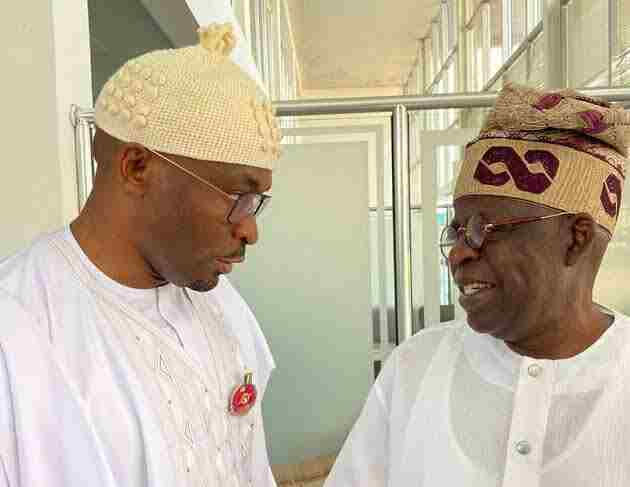The proposal by Nigeria’s lawmakers to establish a new institution, the Bola Ahmed Tinubu Federal University of Nigerian Languages, is deeply troubling. It is even more frustrating that such a suggestion has surfaced at a time when existing federal universities and other centers of learning are struggling due to chronic underfunding. The Lower Legislative Chamber, which is pushing this proposal, should withdraw it. It is ill-timed and ill-considered.
Although the proposal is still at the bill stage, it is sponsored by the Deputy Speaker of the House of Representatives, Benjamin Kalu, with support from eight of his colleagues: Felix Nwaeke, Nasiru Shehu, Alex Ikwechegh, Amobi Ogah, Akin Rotimi, Halims Abdullahi, Bako Useni, and Inuwa Garba.
According to reports from the National Assembly, the bill has already passed its first reading, with Aba, in Abia State, being considered as the location for this proposed university.
One might argue that the bill aims to upgrade the National Institute for Nigerian Languages (NINLAN), located in Akpaa, Ovom Community, along Aba-Azumini Road, Ogbor Hill, Aba, to a university status. However, upgrading a college to a university requires significant funding—money that would be better spent addressing the dire financial needs of the existing institutions that are currently starved of resources.
While the bill’s sponsors may have a point about the need for an institution to promote the study of Nigerian languages and culture for national development, the move reeks of political motivation.
First, it is politically driven. Abia State, a historical stronghold of opposition parties, has been governed by the People’s Democratic Party (PDP) since 1999, except in 2023 when Labour Party’s Dr. Alex Otti emerged as governor.
Kalu, who represents Bende Federal Constituency in Abia State, has vowed to deliver the state to the ruling All Progressives Congress (APC) in the next election, scheduled for 2027.
This university project appears to be part of his strategy to win federal presence and political favor in his state, as President Bola Tinubu will most likely seek re-election. It seems politicians have already begun positioning themselves for the upcoming election.
It is common for politicians to push for the establishment of federal institutions in their constituencies, which they then tout as achievements during election campaigns.
Secondly, the House of Representatives already has a growing number of university establishment bills, even as existing universities remain grossly underfunded, leading to declining academic standards.
The 2025 university rankings by Times Higher Education place Covenant University, a private institution, ahead of Ahmadu Bello University, Obafemi Awolowo University, University of Ibadan, and other government-owned institutions. This shows that private universities are outperforming public ones, largely due to the latter’s underfunding.
Despite Nigeria’s growing population, the country still lacks an adequate number of universities compared to nations like the United States, Canada, and the United Kingdom. However, the government has yet to demonstrate a commitment to improving the quality of the universities it already has.
As of February 2022, the federal government owed the Academic Staff Union of Universities (ASUU) N880 billion for the revitalization of Nigerian universities. According to Professor Ayo Akinwole, the branch chairman of ASUU, University of Ibadan, this debt is part of the government’s failure to honor agreements made with ASUU in 2009.
In October 2024, ASUU President, Professor Emmanuel Osodeke, revealed that 84 ASUU members had died in the past year due to economic hardship and unpaid salaries. Some members are still owed over three years’ worth of salaries.
These are the real issues that Hon. Kalu and his fellow lawmakers should be addressing, not proposing the establishment of new universities. Federal universities are in dire need of financial support, and many are on the brink of collapse.
A visit to the laboratories of some government institutions reveals that the government is either neglecting its responsibilities or lawmakers are failing in their oversight duties to ensure that allocated funds are used properly.
Due to poor funding, some institutions have had to rely on financial support from alumni and private individuals, with many unable to cover basic maintenance costs.
For instance, an alumnus of the University of Nigeria, Nsukka, recently shared photos of one of the hostels, which were in such poor condition that they were unfit for student habitation. This has prompted alumni in the United States to raise funds and plan a direct-labor renovation project for the hostel.
While this bill still has four stages to pass before it reaches the president’s desk for approval, lawmakers and the government should focus on upgrading the standards of existing institutions and improving the welfare of ASUU. Establishing a new university like Bola Ahmed Tinubu Federal University is a misplaced priority when the current ones are crumbling.
Join EdubaseNG WhatsApp Channel to get the latest education & student loan tips
Join our Telegram Channel to get the latest news about Student Loans & Education News.
Are you a stakeholder in education? You can become our guest writer. Write to us using our our email address here




